Exploring Foreign Direct Investment in International Trade Law
VerifiedAdded on 2023/04/23
|5
|1104
|258
Essay
AI Summary
This essay delves into the intricacies of foreign direct investment (FDI) within the realm of international trade law, emphasizing its role as a key driver of global economic growth. It highlights the significance of the investment policy framework, particularly policies related to investment facilitation, performance requirements, ownership restrictions, and incentives, while also considering related policies such as labor market regulation, tax policy, and intellectual property rights. The essay underscores the benefits of investor-state dispute settlement in protecting investors from expropriation, enabling efficient capital deployment, and ensuring equitable treatment. It advocates for the global trading system as the best legal framework for resolving FDI-related disputes, citing its established rules and principles, although acknowledging limitations such as the high costs and time-consuming nature of filing cases. The analysis considers the economic and political implications of FDI and the importance of a global trading system in facilitating international business and free trade among member nations.
1 out of 5
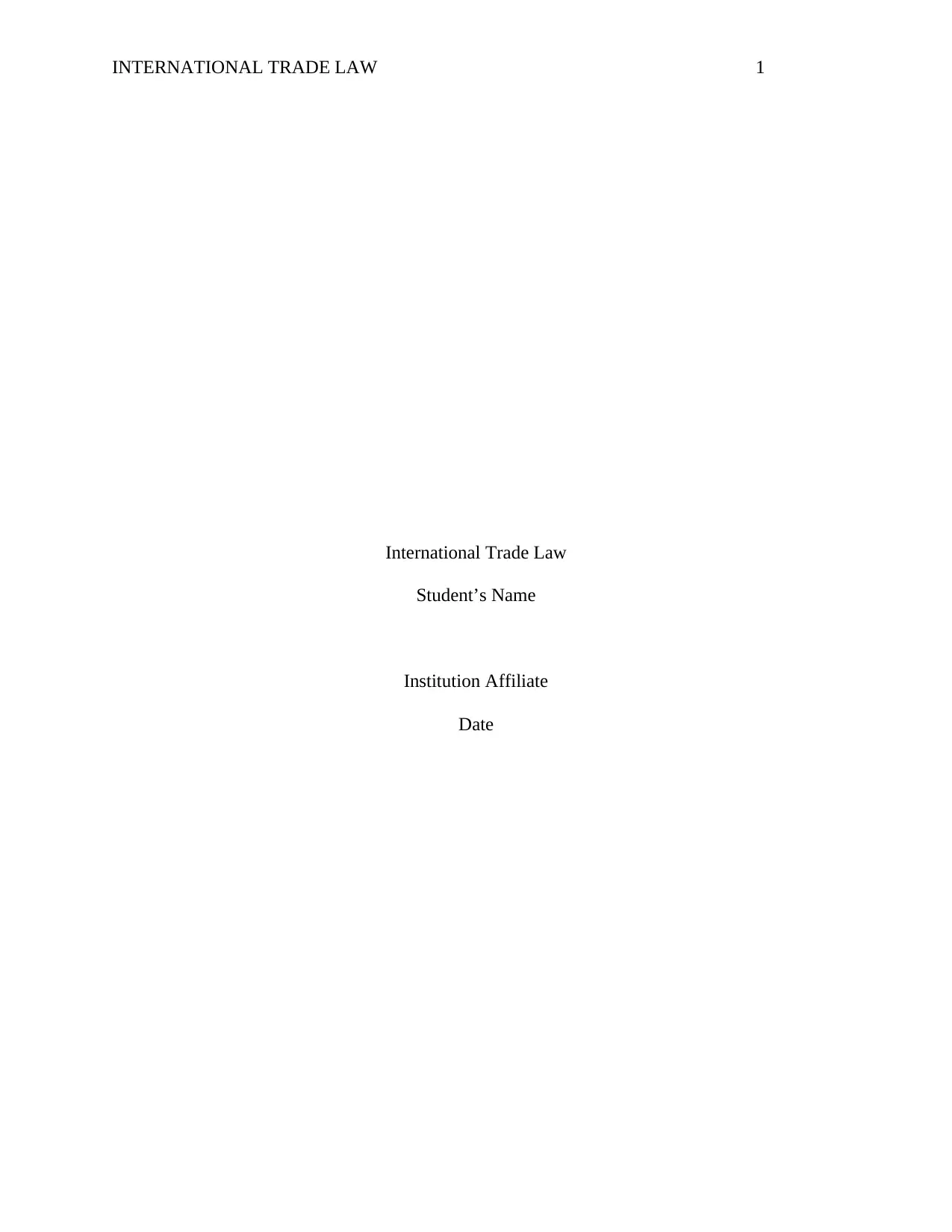
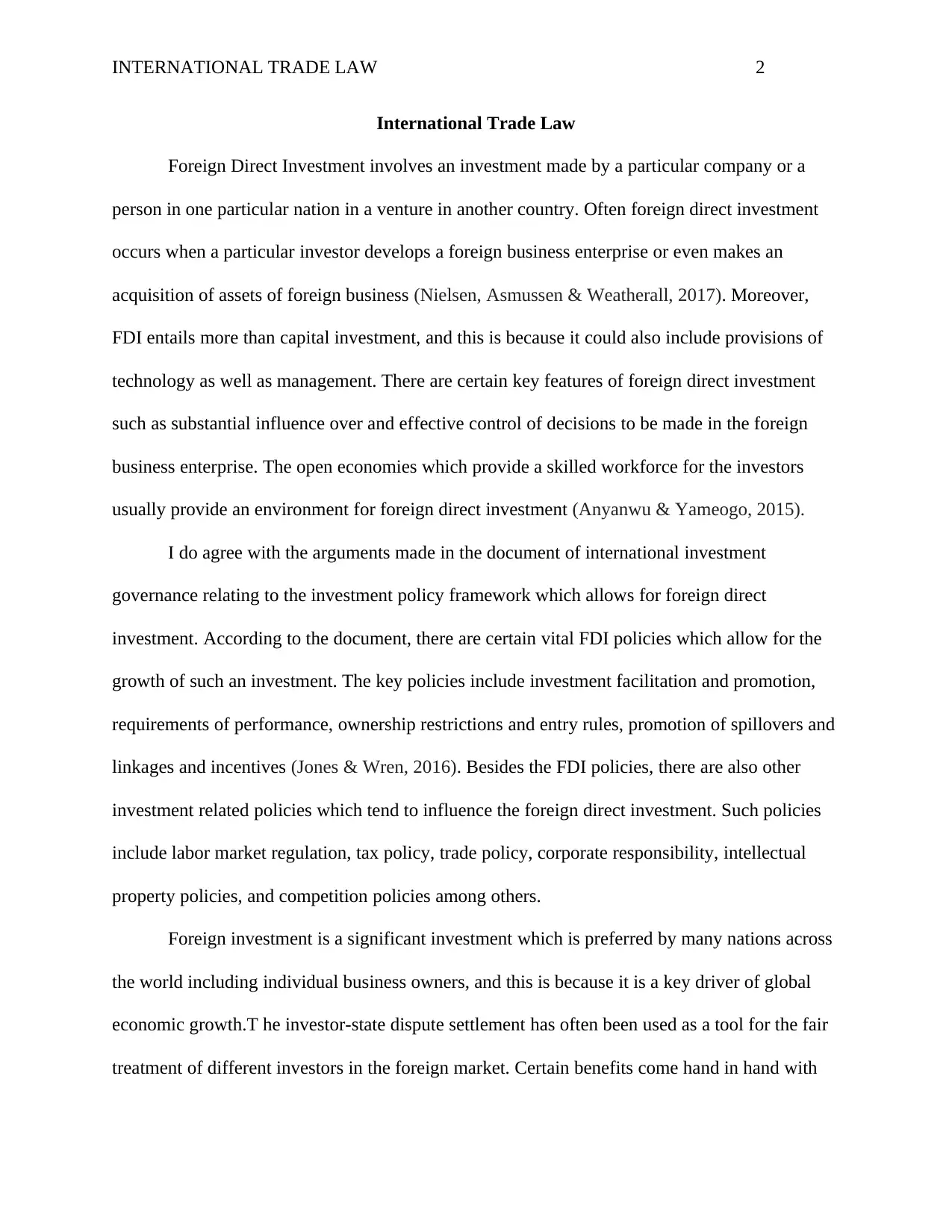
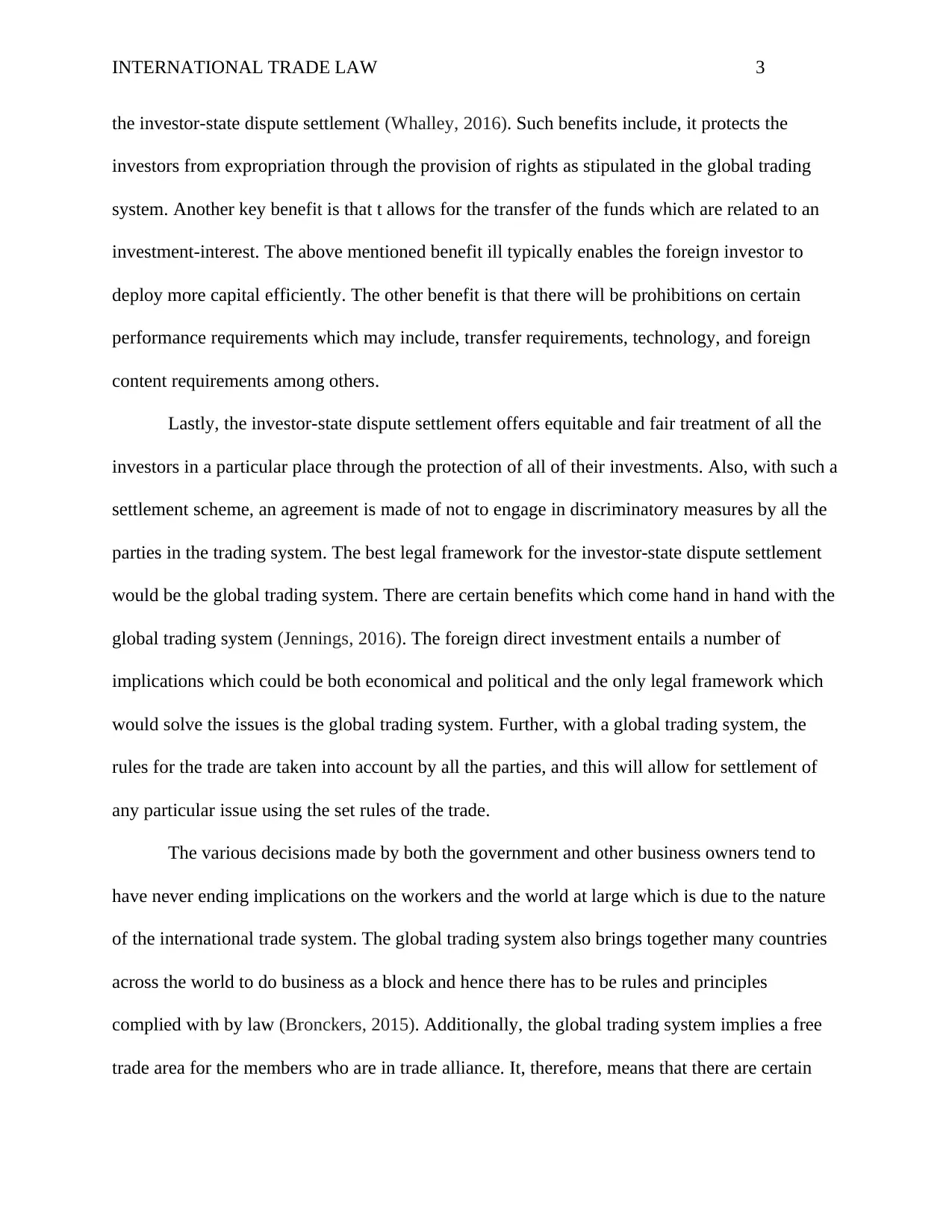

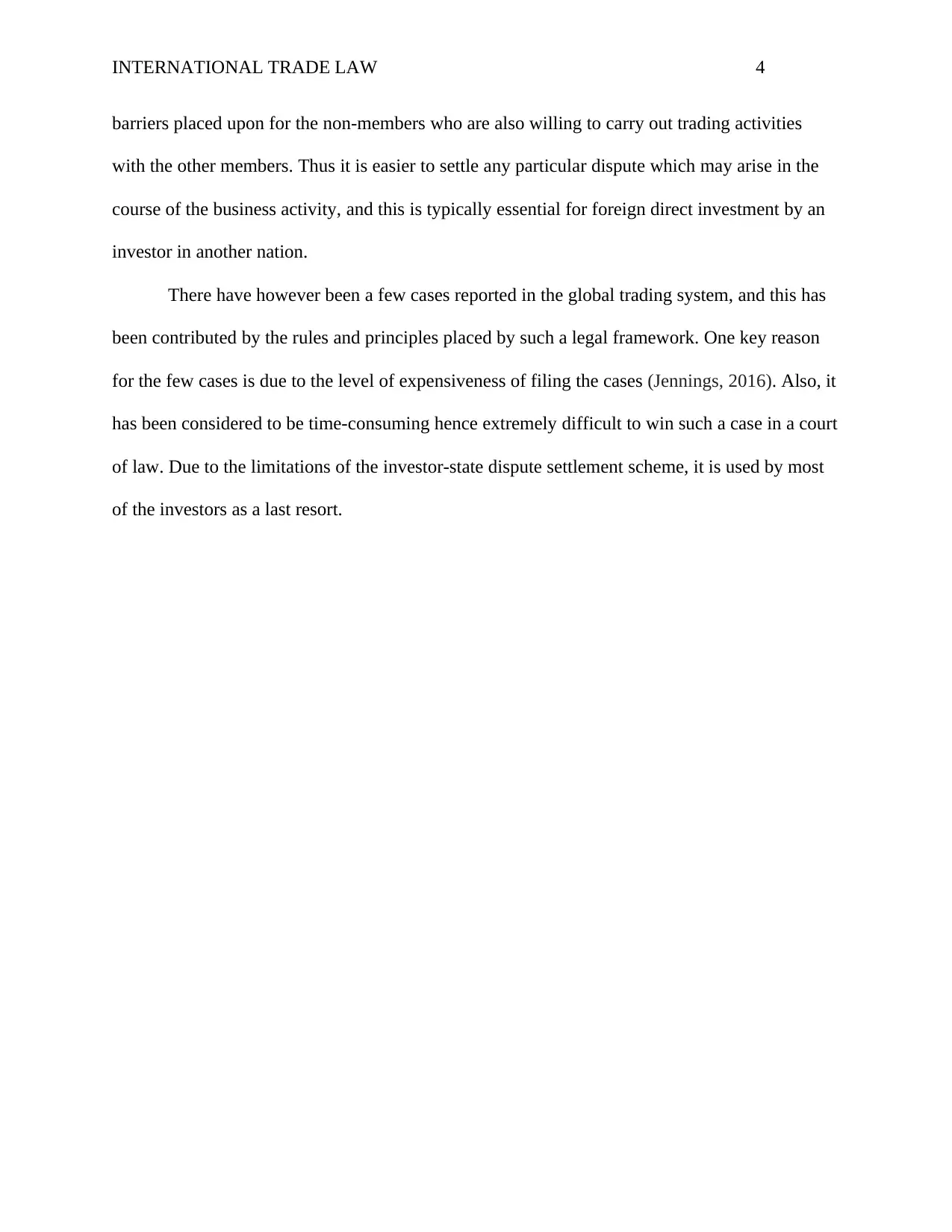
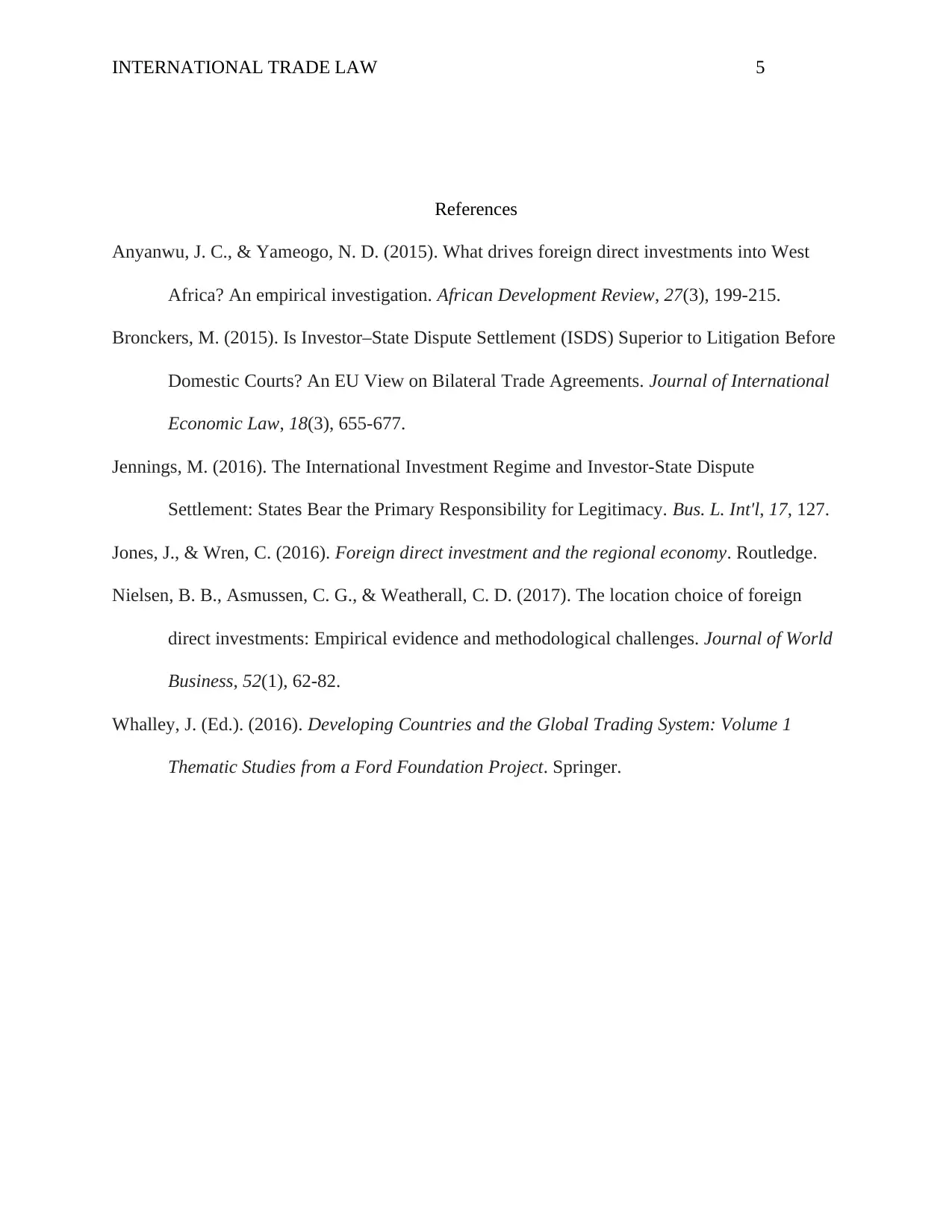






![[object Object]](/_next/static/media/star-bottom.7253800d.svg)